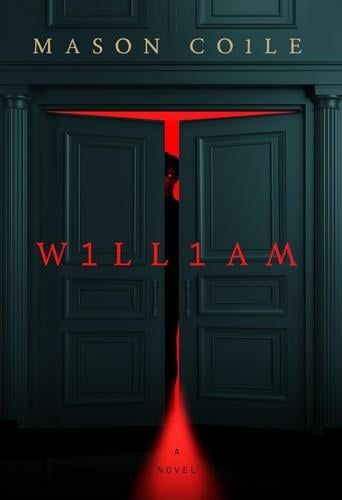
“William” by Mason Coile, $24, G.P. Putnam’s Sons.
William
By Mason Coile
G.P. PutnamÔÇÖs Sons, $24, 224 pages
ÔÇťWilliamÔÇŁ is a short, sharp shock of a book that tells a quick techno-horror tale about a smart house gone bad and AI run amok.
When married engineers Henry and Lily invite another couple over for brunch, on Halloween of all days, we might not be expecting a demonic parody of ÔÇťWhoÔÇÖs Afraid of Virginia Woolf?ÔÇŁ but thatÔÇÖs whatÔÇÖs on the menu.
Henry is agoraphobic and canÔÇÖt leave his Victorian pile of a house, which is ÔÇťcybernated to a degree far beyond the capacity of any store-bought smart device or talking appliance.ÔÇŁ He keeps himself busy in the attic making a robotic boy with a mind of his own, named William, while Lily, who is pregnant, seems to be a bit of a sexual free agent when left on her own. The brunch is a reveal party for William, but when the ghost in the machine thatÔÇÖs running everything starts wanting a fuller picture of human experience, bad things happen.
YouÔÇÖve likely seen movies very similar to ÔÇťWilliamÔÇŁ┬áÔÇö from ÔÇťDemon SeedÔÇŁ to ÔÇťM3GANÔÇŁ┬áÔÇö but Mason Coile (pseudonym of Canadian author Andrew Pyper) keeps the human rats running through his maze of death at a brisk, entertaining pace and wraps things up with a great ending. A major motion picture canÔÇÖt be long in coming.

“All You Can Kill” by Pasha Malla, $24.95, Coach House.
All You Can Kill
By Pasha Malla
Coach House, $24.95, 219 pages 
ÔÇťAll You Can KillÔÇŁ might be thought of as a sequel to Pasha MallaÔÇÖs previous book, ÔÇťKill Them All,ÔÇŁ though given the strangeness and discontinuity of the proceedings, itÔÇÖs not clear if the word ÔÇťsequelÔÇŁ has a lot of meaning here.
Where ÔÇťKill Them AllÔÇŁ got progressively stranger as it went along, ÔÇťAll You Can KillÔÇŁ starts off totally untethered to reality, with the unnamed narrator and his partner, the security guard K. Sohail, floating away like human balloons to an island sex-and-relationship resort. Once there they assume the identity of a couple presumed to have been killed in a helicopter accident, but their subterfuge soon spins out of control.
That brief synopsis gives no idea of how odd a book this is. Things happen with the anti-logic of a dream, which has led many to label Malla a surrealist. If a chicken takes to perching on the comically formal and loquacious narratorÔÇÖs head, donÔÇÖt even bother trying to assign it any meaning. ItÔÇÖs just something else weird going on in a wild novel that despite its impossible strangeness manages to capture something true about how we process the chaos of modern life.

“Countess” by Suzan Palumbo, $21.95, ECW Press.┬á
Countess
Suzan Palumbo
ECW Press, $21.95, 160 pages 
ItÔÇÖs described as a ÔÇťqueer, Caribbean, anti-colonial sci-fi novella, inspired by ÔÇśThe Count of Monte Cristo.ÔÇÖÔÇŁ But DumasÔÇÖ classic is, for one thing, an epic tale of revenge, while Brampton author Suzan Palumbo, with the cosmos as her backdrop, doesnÔÇÖt give herself as much elbow room to tell her story. Nevertheless, the inspiration itself lends ÔÇťCountessÔÇŁ a lot of narrative energy, which Palumbo gives a contemporary cultural spin.
Virika Sameroo, a lesbian of West Indian descent, is a first lieutenant on a cargo ship plying deep space as part of the ├ćcerbot EmpireÔÇÖs merchant marine. Falsely accused of murdering her captain, she is thrown into prison for 10 years, which gives her time to plot her revenge against the evil colonizing empire┬áÔÇö empire being, as ever, the Big Baddie in most such tales.
In addition to moving too fast, the back half of the book becomes a bit predictable. But itÔÇÖs still fun to see the ghost of Dumas being dressed up like this in a swift, postmodern space operetta.

“Playground” by Richard Powers, $38, Random House.
Playground
By Richard Powers
Random House, $38, 384 pages 
ÔÇťPlayground,ÔÇŁ the latest offering from Pulitzer Prize-winning Richard Powers, is a book about everything, and it attempts to show how all of it is connected.
Characters and locations representing what seem to be polar opposites are drawn together in the wide-ranging plot. Todd and Rafi, childhood friends from different sides of the tracks, create an online game called Playground. Todd will go on to become a tech billionaire who turns Playground into its own economic ecosystem, while RafiÔÇÖs interests tend toward literature. Their lives are linked to an older oceanographer on the Polynesian island of Makatea, which is set to become the springboard for humanityÔÇÖs plan to colonize the oceans of the world.
There are a lot of messages and ideas in ÔÇťPlayground,ÔÇŁ about the natural vs. the virtual world, the way we disconnect from nature when we lose connection to one another, and what it means to live in balance with nature anyway. This makes it all pretty heady stuff, and the characters take a back seat to both the ideas in play and the colourful descriptions of ocean life. It is, however, a story about matters worthy of attention.






















To join the conversation set a first and last name in your user profile.
Sign in or register for free to join the Conversation